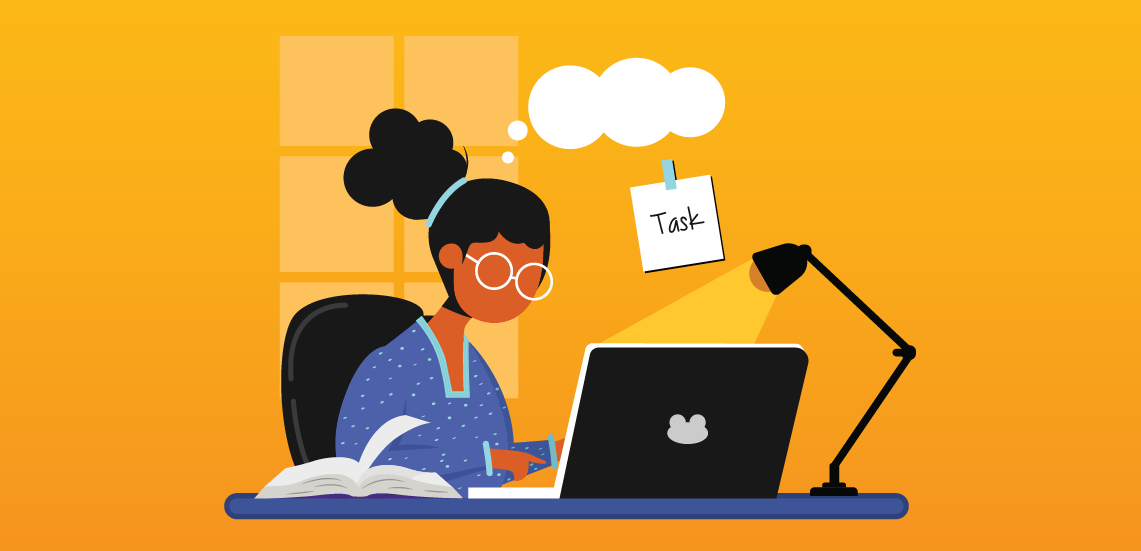Academic achievement is the final goal of a student's educational journey. However, to reach optimal results, students need several skills such as critical thinking, planning, self-monitoring, and problem-solving that they develop throughout their educational process. Although schools provide all the ingredients for student development, a wider focus should be placed on supporting these executive functioning skills in order to encourage autonomous learners and, eventually, successful adults.
That’s why the education system needs to understand that children are not born with these skills. It has to work with the existing potential of students and develop these skills to avoid delays or impairments. Since adverse environments and stress can disrupt executive functioning skill development, schools have to provide educational programs that teach students how to successfully plan and achieve their goals.
In this article, we’ll discuss executive functioning skills and their importance as well as ways to teach them with the help of your learning management system (LMS).
What are the most important executive functioning skills?
According to Harvard University's Center of the Developing Child, executive functioning skills are “mental processes that allow students to focus, remember, plan and do multiple tasks at a time through filtering distractions to achieve tasks and goals.”
In other words, they are skills needed to perform everyday tasks and form the management system of the brain. According to Harvard University, the development of executive functioning skills depends on the coordination of three types of brain function:
- working memory - the ability to remember information for short amounts of time;
- mental flexibility - the ability to shift attention to respond to changes;
- self-control - the ability to prioritize and resist impulsivity.
Here is a list of the most important executive functioning skills when it comes to student achievement:
-
Planning
Students are generally guided by the teacher and parents throughout their learning journey. However, they also need to develop the skills to create an action plan considering the future (short-term or long-term projects related to school or life), determine the necessary steps to take to achieve something, and stick with them. So, planning is one of the most important skills on the executive functioning skills checklist.
-
Self-monitoring
Students are continuously monitored and evaluated at school to determine their level of knowledge and overall development. Nonetheless, self-evaluation is equally or more important since it allows students to properly assess their strengths and weaknesses and pinpoint the needed course of action. Done inadequately, self-assessment and monitoring can lead to serious issues that can impact students' well-being.
-
Working memory
Working memory is the ability to remember information, directions, or instructions for short periods of time. This is important since working memory impacts the way students complete learning tasks, especially since it can affect how students work with information. For example, a student who constantly struggles with solving a multi-step problem or following more complex directions may have working memory issues.
-
Regulating emotions
Sudents experience a variety of reactions to what happens to them. Emotion regulation also differs greatly from student to student as they all learn how to understand and embrace their feelings. The ability to regulate emotions prevents outbursts and develops their capacity to receive feedback. It’s also crucial for forming healthy relationships and setting boundaries with their colleagues and teachers.
-
Time management
Carrying out projects successfully is related to the ability to anticipate the amount of time needed to complete a task, especially when there are deadlines to meet. Regardless of deadlines, students have to learn how to be as productive as possible in a given time frame. Also, time management is a key skill that allows students to predict how much time they need to allocate to any given activity. For instance, consistently being on time for class is an underappreciated time management exercise.
-
Organization
Creating and maintaining an orderly system is an essential executive skill that will help students have a clear picture of what goal they want to reach, how they plan to reach it, and the order of the steps to take. Students need to also be able to create a routine and stick to the plan.
-
Adaptive thinking
Now more this ever, students need the ability to adapt to constant changes and overcome obstacles. They also need mental flexibility to shift focus from one idea to another or from one task to another. This is easier for children, since they don’t have the adult biases and years of routine to stifle their flexible mindset, but adaptive thinking needs to be nurtured and encouraged in schools.
-
Paying attention
The ability to focus shows an intrinsic motivation and curiosity toward a subject. Moreover, being able to concentrate on a task and avoid distractions ensures that students perform well in the classroom and outside of it.
How can teachers spot executive function challenges?
Executive function development does not look the same for every student. Teachers are usually the first to notice these signs and suggest professional psychological evaluation and intervention. Poor executive functioning skills development can be a sign of learning difficulties often associated with attention deficit hyperactivity disorder (ADHD), dyslexia, or dyscalculia, although it can just be a sign that your students need extra support.
If your students are struggling with any item on the executive functioning skills list, you may notice behaviors such as:
- Difficulty with starting or completing tasks;
- Losing focus and forgetting recent information;
- Difficulty following instructions;
- Issues with adapting to changing routines or plans;
- Low impulse control;
- Motivation problems;
- Keeping track of their belongings;
- Being very easily distracted.
In this case, you should inform their parents and seek the help of a school counselor.
Plus, teachers have a lot more flexibility when it comes to teaching these skills. Most LMSs already have the features to help students plan their learning and achieve their goals. For example, Cathi Allen, the director of studies for The Inclusive Higher Education Certificate Program (IHECP) has noticed that:
“Educational technology promotes executive function and independence skills in students. This is important since students need these competencies as they transition from school to work.
We're able to watch our students move through the lessons and if they're not able to pass a lesson at the mastery level that we require, the students are able to go back through and retake quizzes. They're also able to take a look at a progress bar, see where they are in the class and where they are throughout the whole semester. - Cathi Allen”
Read more: Providing access to educational content for students with developmental disabilities
How to teach executive functioning skills with the help of your LMS
To understand how you can teach executive functioning skills, it’s important to first understand how individuals tackle daily tasks and what are the steps they take to facilitate planning, organizing and goal achievement. There are a few steps to can take to improve executive function such as breaking up larger tasks into small steps, creating to-do lists or using a calendar to remember and plan long-term activities.
Here are some examples of how students can improve their executive functioning skills with the help of online learning platforms:
1. Calendars/to-do lists
In the LMS, students have calendars to keep track of their classes and assignments, including to-do lists which help them understand what they have to do and how to manage their time effectively.
They can self-monitor their work while also receiving reminders from the teacher or automatically from the platform as a form of guidance, with students still in control of their learning process. For example, they’ll be less likely to forget their homework if they see the to-do list as soon as they log in. Having access to all the necessary information, students can create a working routine that is easy to follow and that suits their needs.
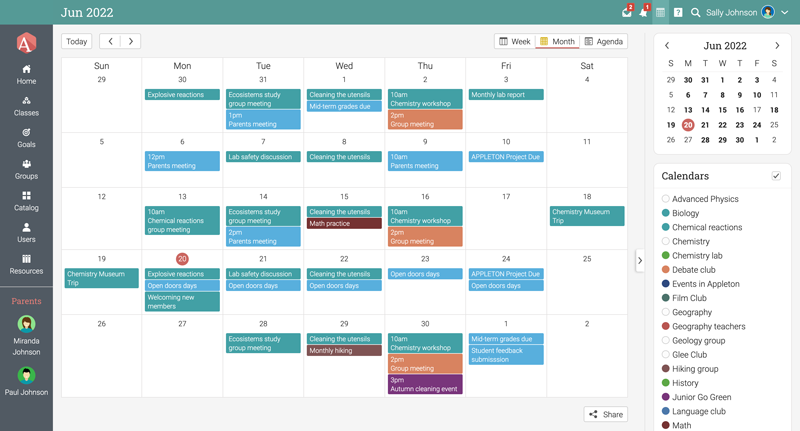 Students use calendars to keep up with tasks, upcoming events, and more.
Students use calendars to keep up with tasks, upcoming events, and more.
Read more: Top 7 remote learning tips your students should know
2. Progress monitoring
While calendars are great for time management, progress monitoring takes this a step further by showing students how far along they are in their lessons, which lessons are incomplete and which ones they have yet to start.
The learning platform has graphical dashboards that show progress bars so they don’t get overwhelmed with numbers or the time spent in lessons (although teachers can also see this).
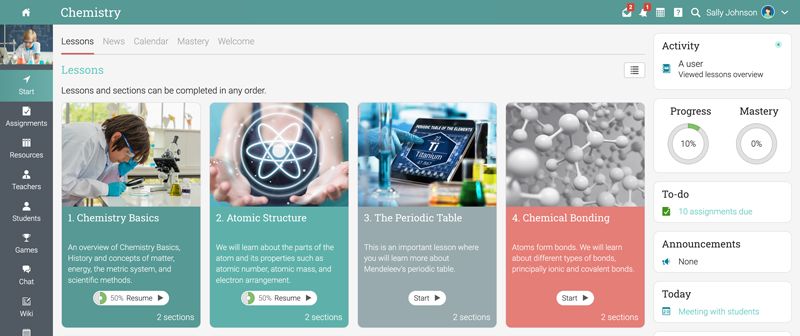 It's important for students to understand where they are and what they have to do to progress in lessons.
It's important for students to understand where they are and what they have to do to progress in lessons.
3. Learning goals
Edtech makes goal-setting clear and straightforward, allowing students to see what they have to achieve and the competencies and concepts they have to master. For example, students can set learning goals such as “Learn fractions” and the platform will automatically show them content recommendations such as “watch this video about fractions.”
Additionally, competency-based learning shows students their progress in achieving goals through self-monitoring features. After taking a quiz and getting their grade, the platform also shows them recommendations and notifies the teacher. In this way, students who are struggling to keep up with certain competencies will be able to get right back on track.
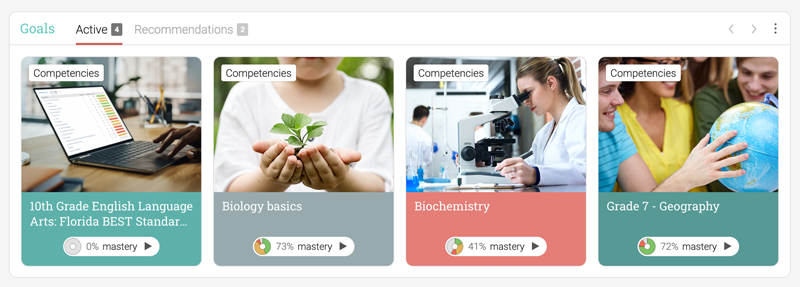 Goals such as mastering "Biology basics" are based on competencies that students should attain.
Goals such as mastering "Biology basics" are based on competencies that students should attain.
Read more: How to close learning gaps with the help of an intelligent learning platform
4. Micro learning
This approach can help with students’ working memory since it eases cognitive load which is especially useful when they’re learning new concepts. In addition, working memory is closely related to attention because of the attentional selection of the contents of working memory.
Micro learning shows promising results in regulating attention span problems when learning online through bite-sized lessons in which students can learn at their pace without feeling overwhelmed by the amount of content they have to learn. It also allows spaced repetition and retrieval practice because students can manage their tasks and workload according to their own schedules. Moreover, micro classes remove a lot of graphic elements that could distract students from the main educational content.
 Micro learning eliminates distractions so students can concentrate on bite-sized pieces of information.
Micro learning eliminates distractions so students can concentrate on bite-sized pieces of information.
5. Personalized learning
With an LMS, teachers can create personalized learning paths for students which provide them with different content, materials, and resources according to their evolution and their learning needs.
Also, students can take control of their learning and advance at their pace while receiving support, automatic feedback, and recommendations. Personalized learning provides opportunities for students to practice, master, edit, revise, and resubmit tasks and assignments which promotes the ability of students to self-monitor and self-check their work. Moreover, the versatility of an LMS allows teachers to listen to students’ voice and choice on how to showcase their knowledge which can differ from student to student.
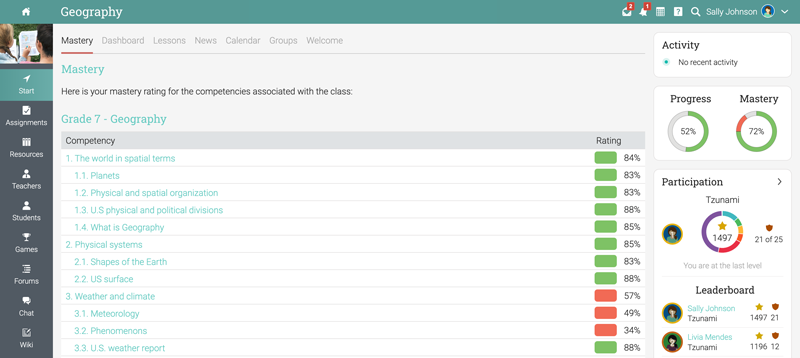 It's empowering for students to understand what they are working towards and how they are doing at any time.
It's empowering for students to understand what they are working towards and how they are doing at any time.
Read more: 3 Pillars of personalized instruction: interactivity, flexibility, and authenticity
6. Integrated apps
An LMSs provides integrated apps for different student needs which facilitate learning. For example, MS Immersive Reader is a popular tool for students who need to learn to focus their attention better.
Panopto allows teachers to create videos and presentations to engage students and has various playback options so that students can choose the pace of the content to their personal needs. They also help teachers create micro lectures which is a good way to use as a part of your micro learning strategy.
 Third-party integrations help teachers create a better learning experience for students.
Third-party integrations help teachers create a better learning experience for students.
Supporting each student’s executive functioning skills
Executive functioning skills allow students to successfully complete school tasks and achieve learning goals through planning, organization, self-monitoring, and more.
Schools can embed executive functioning skills in the curriculum to ensure that students have all they need to develop them. However, it takes another management system, an LMS, to facilitate the development of executive skills in the digital era. It’s also easier than ever for teachers to keep track of each student’s progress and development as well as know when to provide extra support.







